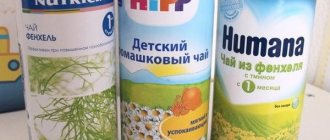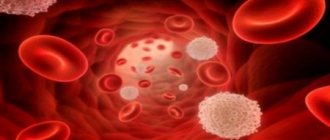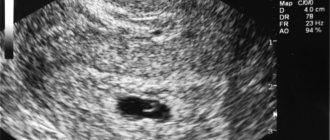Features of the newborn's immunity
Starting from the 32nd week, the fetus begins to simply receive “handfuls” of immunoglobulins G, which - yes, yes! – protect it from infections. Now do you understand why premature babies are so much more susceptible to disease? It’s simple: due to certain circumstances, they did not have time to “receive” the set of immunity that nature “owed” to them and now they suffer from this in the literal sense of the word.
In general, the later the baby is born, the better, in principle, for him. Of course, within reasonable limits “later”: 41–43 weeks of pregnancy are not very suitable for birth, but if childbirth takes place at 36–38 weeks, it will be what you need.
Immunity of a newborn child and its features
Home / Medicine / Immunity of a newborn child and its characteristics /
Immediately after birth, children rarely suffer from colds; with natural feeding, they can appear by the end of the first six months of life, with bottle-fed babies - earlier.
The thing is that even in the mother’s body, antibodies to major infections are transmitted to the child. Antibodies are also supplied after birth through human milk - this is why pediatricians insist on breastfeeding.
Immunity and its types
Immunity is the body’s immunity to infectious and non-infectious agents and substances that have foreign (antigenic) properties.
Human immunity is divided into congenital and acquired.
Innate immunity is provided by special cells that absorb and dissolve viruses and bacteria within themselves. These cells include some blood cells (neutrophils or granular leukocytes) and tissue cells (macrophages).
This is not specific immunity (all antigens are killed in a row) and the body’s first line of defense against external enemies.
These cells also inform other parts of the immune system about which antigen they have encountered. In the blood, saliva and body tissues there are also bactericidal protein substances that kill infectious agents (for example, lysozyme, compliment, interferon).
Acquired immunity is divided into cellular and humoral.
Cellular immunity is provided by blood cells T-lymphocytes.
When T cells first encounter a specific antigen (such as the measles virus), they undergo a change that allows them to permanently remember that antigen (sensitization). Then some of the T-lymphocytes kill the antigen (these are the so-called killers), and some simply remember the information in order to meet the enemy with dignity next time.
They transmit information further along the chain – to humoral immunity. There are also T-lymphocytes that suppress pronounced immune reactions - these are the so-called suppressors.
Humoral immunity is carried out by special proteins - immunoglobulins, which are produced by B lymphocytes.
Immunoglobulins are divided into 5 types: IgA (it protects the mucous membranes), IgM (circulates in the blood and is the first to meet the enemy), IgG (also in the blood, but appears later, more specific), IgD (its functions are not fully understood), IgE ( the level increases with allergies and helminthic infestations).
Features of immunity in newborns.
A newborn baby is born sterile and is immediately surrounded by a huge number of different antigens. His innate immunity is imperfect, the skin and mucous membranes are thin, and also cannot protect the child from the penetration of bacteria and viruses into the body.
Acquired cellular immunity does not yet work at full capacity - after all, it encounters various antigens for the first time, so T-lymphocytes have not yet learned to recognize enemies, and killers have not yet learned to kill them.
And yet, the child is protected.
While still in the mother’s body, he received a sufficient amount of IgG to all the antigens that the mother encountered.
IgG has a small mass and passes well through the placenta, so the blood of a full-term baby at the time of birth contains the same amount of it as the mother.
Premature babies have significantly less IgG, since it enters the child’s body in the last weeks of pregnancy.
The amount of IgG transferred from the mother to the child gradually decreases and by six months it practically disappears. It is from this time that the infant begins to pick up all kinds of infections.
Another protection for a newborn baby is IgA, which enters the baby’s body after birth through mother’s milk.
This immunoglobulin protects the mucous membranes and at the local level prevents infection from entering the child’s body. It protects the mucous membranes of the respiratory tract and digestive tract.
Therefore, breastfed children practically do not suffer from intestinal infections. On the contrary, artificial babies are under constant threat of this disease, so all bottles and nipples of such children must be sterilized.
A child begins to fully produce his or her IgA only by the age of 5-6 years.
The smart immune system also made sure that when encountering a huge amount of infection after birth, the child did not have allergic reactions.
For this purpose, in the body of a newborn child there is an increased number of suppressor T-lymphocytes, which his body needed earlier, in the prenatal period, in order not to conflict with the mother’s body.
How to strengthen the immune system of a newborn baby
This should be started during pregnancy: proper nutrition, systematic walks in the fresh air, exercise, timely prevention and treatment of all pregnancy complications, especially infectious ones, are an excellent means of strengthening the immune system of a newborn child.
After birth, the main means of strengthening the immune system is breastfeeding. But proper child care is no less important.
We recommend the latest news
- Medicine 09.09.2020
“Sugar addiction”: how to cleanse the body of sugar
- Medicine 08/19/2020
The doctor named one of the main causes of varicose veins
- Medicine 02.08.2020
Illness: an opportunity to get clues from life
- Medicine 07/31/2020
Main cause of autoimmune diseases
- Medicine 03/01/2020
Leaky gut syndrome - a diagnosis of the 21st century
- Medicine 02/07/2020
Vegetative-vascular dystonia interferes with life, and doctors shrug their shoulders
Dependence of the newborn's immune system on breastfeeding
It is so arranged by nature that the baby receives his first food from his mother, or rather, from her breast. In addition to the nutrients that are found in abundance in breast milk, it also contains the same immunoglobulins that are vital for a child. He's essentially born with an incredibly weak immune system.
. Just think: his body doesn’t even know what a common cold is. He has yet to overcome them. To make this easier, natural, that is, breastfeeding, is always preferable.

In addition, breast milk contains vitamins, hormones, enzymes... in general, everything that will form the basis of the immunity of a future adult.
Babies who, for one reason or another, had to be switched to artificial feeding may suffer more. The immunity of a bottle-fed infant will be tolerable for the first 3-4 months. Since he does not receive the necessary antibodies from breast milk, what he “managed” to receive while in the womb will disappear just by 3-4 months.
Breast-feeding. Myths about great immunity
I have not been a member of this community for 2 years now. Firstly, because I haven’t breastfed my daughter for 2 years now, and secondly, I think that after “I’ll give it for free”, this is the most quarrelsome community. But not about that now.
I know that I will incur the wrath of many GW fans. But I want to speak out in order to support those girls who were unable to breastfeed (the reasons are different for everyone, I will not discuss them), and fed the child with formula.
It is believed that breastfeeding is an ideal source of nutrition for an infant. That breastfeeding carries not only the function of feeding the child, but also the emotional and psychological development of the child. I won’t argue with all this either.
But often here I came across posts (I remember there was also such a Sandy, I don’t know if she lives now) in which it was written how much more “sick” children on IV are, so to speak, than those children who had full GV.
So that's what I want to say. I nursed my daughter for exactly a year. It was a full-fledged breastfeeding, which my daughter slowly abandoned on her own, without hysterics or any stress. I really hoped that I had accomplished my mission and that my daughter would have a good, strong immune system. Of course, strong immunity is not only breastfeeding, but also hardening, not wrapping yourself up, proper nutrition and a healthy psychological environment in the family. Believe me, my daughter had and still has all this in abundance.
And now about the situation that has developed now, when my daughter is 3.5 years old.
We have an excellent relationship with her - I hope GV contributed to this. But as for immunity.....
The daughter went to the garden. The first year I was terribly sick. ARVI almost every month, with high fever, antibiotics, otitis, bronchitis and other nasty things. Now the second year of “adaptation” to kindergarten has begun. Same story again.
And I wouldn’t be writing this post if it weren’t for my friend. She gave birth to a daughter and was unable to breastfeed her. I haven't breastfed for a day. The result is that her daughter has been going to the same kindergarten as ours for 2 months now and is not sick. In general, she almost never gets sick; she got really sick a couple of times. She is a very strong and wonderful child. Mentally, physically and psychologically - HEALTHY!
Again, I am not belittling in any way breastfeeding, breastfeeding, I think it really is the ideal option for feeding a child. But the benefits they talk about are not too exaggerated. It is undeniable, but those miracles that GW adherents talk about are not too unrealistic...
Therefore, based on my experience, I want to support those girls who do not breastfeed, again for various reasons. I am convinced that the child’s health and his psychological and emotional state depend to a large extent on the desire of his mother to do everything impossible so that the child is the happiest, without even having breastfeeding...
Lymph nodes and the immune system
We know that lymphocytes are the main component of immunity. Indeed, the protective function of the lymph nodes simply cannot be overestimated - it is incredibly important!
Somewhere between 9 and 12 weeks of pregnancy, the rudiments of the lymph nodes are formed, which will take on their final form only after birth. The bottom line is that if something goes wrong during this period, the immunity of newborn children may suffer.
Any diseases associated with lymph and lymph nodes also affect the small body’s ability to protect itself from infections, viruses and bacteria.
Primary immunodeficiency conditions
Let's look at this in more detail. Such conditions occur in the presence of pathology in the lymphoid tissues or lymphatic system. Well maybe?
- Improper functioning of the thymus leads to the production of a small number of T-lymphocytes. This, as you understand, is a direct threat to the child’s immunity.
- If there are no immunoglobulins at all or not enough of them, antibodies simply cannot be formed. Accordingly, we also have problems in the form of increased susceptibility to pathogens.
- Combined deficiency occurs when two pathologies described above occur simultaneously. Such children, as a rule, are doomed, since any harmless microbe for them can be fatal.
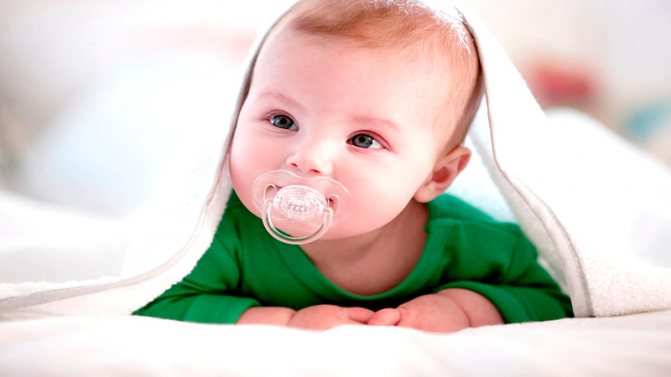
Early breastfeeding strengthens the immune system
To build immunity, it is important to put the baby to the breast as early as possible, within the first hour after birth. During this period, the baby’s intestines are highly permeable to substances that perform immune functions and support the child’s immune system. The earlier the child begins to suckle at his mother’s breast, the stronger his immunity will be. This is stated in the March 2018 issue of the scientific journal “Immunology and allergic reactions in pediatrics” [4].
A study involving 4,203 Tanzanian children was completed in 2020. It turned out that delayed breastfeeding (attachment to the breast more than an hour after birth) increases the risk of upper respiratory tract diseases by 48% [5]. Conversely, an observational study of 1677 children from Bangladesh showed that early breastfeeding protects the child from infectious diseases [6].
Thus, it is important not to miss the first hour after birth, when the foundation of the baby’s immunity is laid.
Ways to boost immunity
So we get to the topic that worries all parents: how to increase the immunity of a child under one year old?
The answer will consist of several parts.
The first is, of course, breastfeeding. Provided that the mother does not have pathologies of the mammary glands or diseases that prevent the child from receiving breast milk, one must adhere to the natural method of feeding. Only in this way will the baby be able to receive a sufficient amount of substances that will later form a strong immune system.
Secondly, it's fresh air. Maintain a healthy microclimate in the apartment and take your child for a walk. Yes, of course, in a stroller. You just need to correctly determine the weather and dress the baby accordingly. It does not need an extremely cold or hot environment. If you can feel the weather correctly, then dressing your baby correctly will not be a problem for you. The point is to prevent your baby from getting cold or sweating too much. The walk should be comfortable in time so that none of you gets tired.

Thirdly - and this is the last point in this article - this is proper nutrition. A small child needs enough protein and other nutrients. In parallel with breast milk, parents introduce regular food into his diet. This must be done extremely competently and correctly in order to prevent dysbiosis and other diseases that can push the immune system back.
How does breastfeeding affect a newborn's immunity?

The topic of breastfeeding is very relevant today, and modern caring mothers approach this process with all responsibility and do everything possible to establish and maintain lactation. One of the reasons for this “zeal” of parents is the opinion that breast milk strengthens the baby’s immunity. By the way, this statement is not unfounded, but is supported by multiple scientific studies in the field of pediatrics. Let's talk in more detail about how breastfeeding affects a child's immunity. There are two types of immunity - natural and artificial. As you might guess, artificial immunity is achieved through vaccination, for example, but natural immunity is acquired as a result of a previous illness or transmitted at the genetic level. However, scientists have found that natural immunity can be formed through breastfeeding. It is worth characterizing two medical terms: Antigens are foreign substances of an organic nature, when they enter the body, special antibodies are produced to fight them. Antibodies are natural components in blood serum, cell membrane, tissue fluid that identify and neutralize antigens. Antibodies include immunoglobulins synthesized by lymphocytes when antigens (bacteria, viruses) appear in the body. The advantage of breastfeeding is the content of immunoglobulins and antibodies in mother's milk, which can protect the baby's body from antigens. Mother's milk does not increase the concentration of antibodies in the blood of a newborn, however, immunological studies have proven that the mucous membranes of the respiratory, digestive, and genitourinary systems contain a special form of immunoglobulin - SigA, which is found in high concentrations in the colostrum of a nursing mother. In breast milk, its content is less, but sufficient to protect the baby from the harmful effects of pathogenic viruses and bacteria - staphylococci, enteroviruses, rotaviruses and others. Of course, breastfeeding will not save you from all problems, but it can significantly facilitate the process of adaptation of a newborn to new living conditions. It is worth considering that the digestive system of a newborn baby is imperfect and “matures” during the first few months of life. Accordingly, problems may arise with the digestion of breast milk, manifested in the form of colic and accumulation of gases in the baby’s stomach. In some cases, mothers even decide to give up breastfeeding, depriving their children of the most important thing - valuable elements of breast milk that provide immunity, which are not found in any adapted milk formula. To avoid tummy problems that may occur in breastfed babies, caring mothers give their baby Espumisan during feeding. This allows you to go through the period of “ripening” of the digestive system without colic and gas, which can cause discomfort to the baby. Take care of your baby's immunity from the cradle, breastfeed to the delight of yourself and your baby!
Newborns and their immunity (Video)
Related Articles

Immunity of a three-year-old child: strengthening it correctly and competently
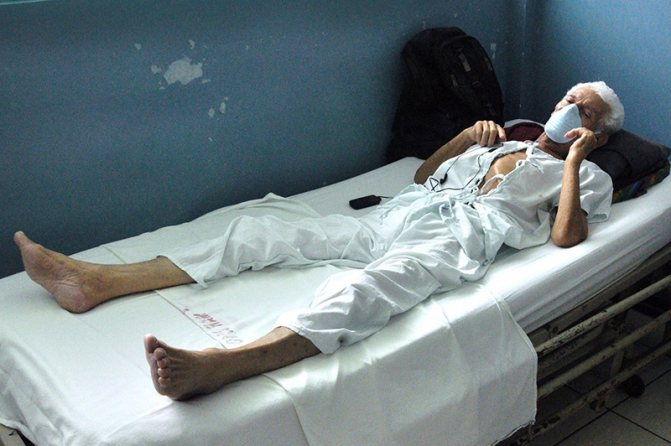
Anti-tuberculosis immunity: the mechanism of its occurrence

We increase immunity in a 5-year-old child. Advice and non-standard solutions.
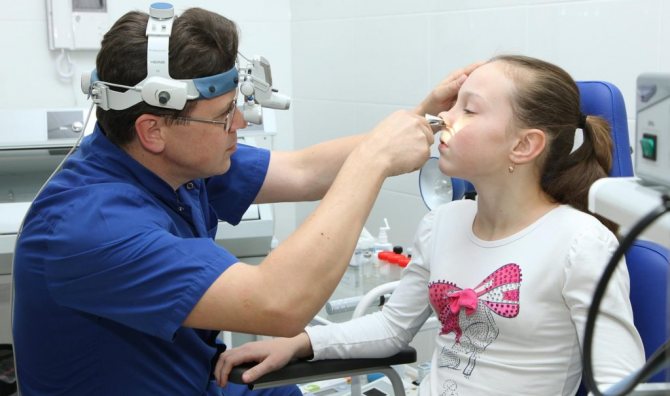
Inflammation of the adenoids in a child: how adenoiditis manifests itself and how to treat it

How to boost your child's immunity

How to boost immunity in a 10 year old child
